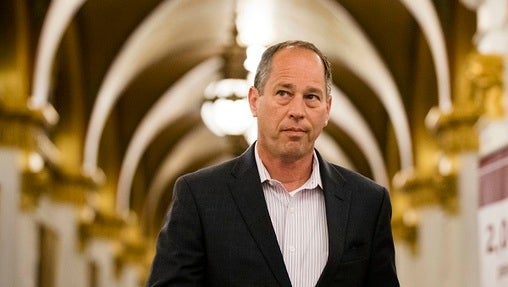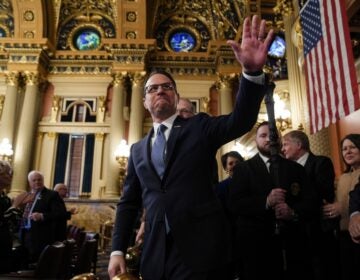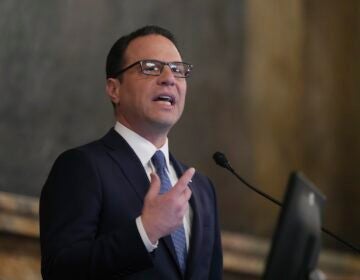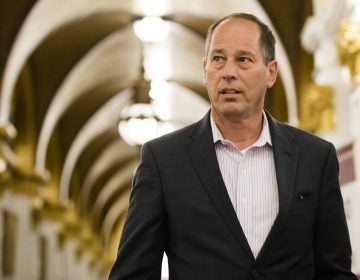Pa. Senate leader proposes bill to open primary elections
Scarnati is saying he's concerned closed primaries are making both parties more extreme.

Pennsylvania Senate President Pro Tempore Joe Scarnati opposes legislation that would would open a two-year window for lawsuits in child sexual abuse cases where the statute of limitations has expired. He argues that would be unconstitutional. (Matt Rourke/AP Photo)
A top state lawmaker wants to break down the walls keeping unaffiliated voters from participating in Pennsylvania’s primaries.
Senate President Pro Tempore Joe Scarnati is saying he’s concerned closed primaries are making both parties more extreme.
Under the commonwealth’s current election law, only registered Democrats and Republicans can cast ballots for their own parties’ races.
Scarnati’s proposal wouldn’t let third parties into the process, but it would let unaffiliated voters pick a major party candidate to support.
Scarnati’s chief of staff, Drew Crompton, said his boss isn’t necessarily expecting the bill to pass — at least this session. But he hopes there will at least be a committee hearing.
“Both parties — at least party structures — are generally fairly adamantly against it,” he noted.
Opponents to open primaries often argue that they make it easier for party primaries to be swayed — sometimes on purpose — by people who don’t actually support that party.
Scarnati has argued that it’s worth the trade-off if open primaries would give moderates a stronger voice.
“It’s happening on both sides,” Crompton said of increased partisanship. “And that’s why [Scarnati] was convinced a few months ago that this was at least a small way to try to moderate all the wings, and at least move them a little closer to the middle on the continuum.”
State primary laws vary widely, but 16 let unaffiliated voters participate.
WHYY is your source for fact-based, in-depth journalism and information. As a nonprofit organization, we rely on financial support from readers like you. Please give today.





